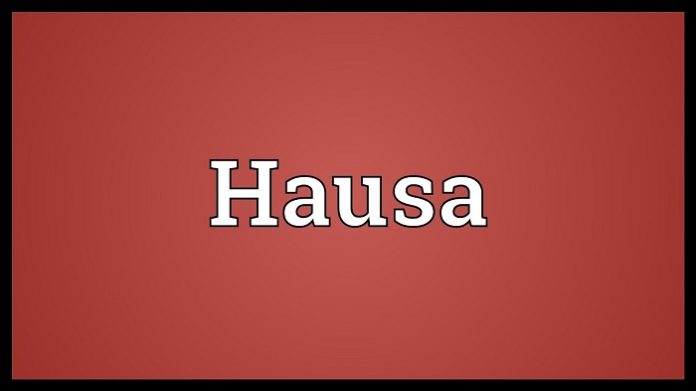Nigeria is a country with a population that is estimated to be close to 200 million people. In a country with this many people, it is not a surprise that cultural behavior and languages differ on a large scale. Nigeria is home to over 500 languages but for a more unified front and easier means of communication, the country’s official language is English. One of the local languages, Hausa, has one of the highest number of speakers spread across the county. This means that learning some Hausa language phrases will always be a good idea.
The History of the Hausa Language
Language experts have described the Hausa language as being Chadic, meaning it is derived from the Republic of Chad which borders Nigeria to the north. Hausa is spoken by the people who are indigenous or live in Northern Nigerian as well as people in the South of Chad. People who speak this language are called Hausas. It is estimated that the number of people who speak Hausa is 72 million in number, with 65% of this number speaking it as their first language while the remaining 25 million speakers of the language speak it as their second language. The language has 4 dialects that are determined by the geographical locations they are spoken in except for the largest dialect which is spoken mostly by the people in Kano.
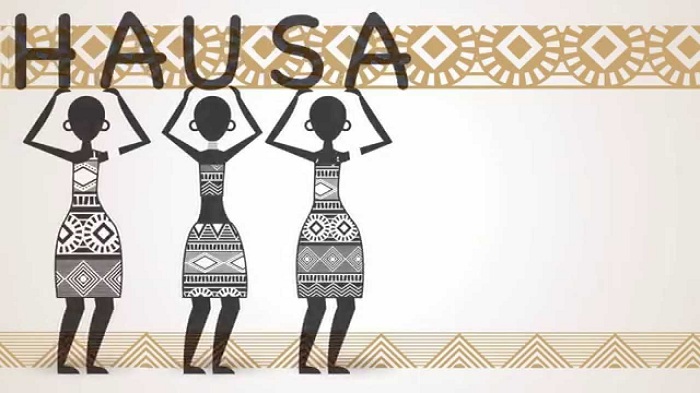
Hausa Is Spoken In Several African Countries
Nigeria and Chad are also not the only places where this language is spoken largely. There have been reports of people in other West African countries such as Benin, Togo, Ivory Coast, and Ghana. The spread of the Hausa language has also been noticed in some other countries within Central Africa. These countries include the Central African Republic (CAR), Cameroon, and Gabon. Hausa speakers have also been identified in the northwestern part of Sudan. The spread of the language can be attributed to things such as trade and large-scale migration, which can apply to all countries outside of Nigeria and Chad where the language is spoken.
Hausa Language Phrases You Can Easily Learn
Whatever reason that takes you to areas where Hausa is spoken widely, either in Northern Nigerian or parts of Chad, having a grasp of some basic Hausa language phrases, particularly certain ones that are prone to come up in conversation, is very important. This will give you a chance to connect better with the people in the area, thereby making for a much better experience.
Here are some Hausa language phrases to have in your back pocket if you plan to spend some time around Hausa speakers.
Greetings and Salutations
These are the phrases that begin and end any conversation that you are going to have with any of the people with who you come in contact.
- Sannu: This translates to “Hello”. When pronouncing this word ensure that you place stress on the first syllable of the word. If this word is said to you, you ought to reply with Sannu Kadai or Ina farin cikin haduwa da kai which means “nice to meet you”.
- Gafara dai: You might want to introduce yourself in another way other than saying hello and using Gafara dai which means “excuse me” is a good way to go.
- Na Gode: This word means “Thank you” and is used to show appreciation. If you are feeling empathic, you can say Na gode sosai
These are the different ways to ask for a male and a female’s name:
- Mi sunanka? (To male) – What is your name?
- Mi sunanki? (To female)- What is your name?
The response to these questions is the word Sunana. It means “My name is”. So a sentence with this word would be “Sannu, sunana Bayo” which translates to “Hello, My name is Bayo”
- Na fito daga: Still in the process of introductions you can inform whoever it is you are speaking to where you are from and this can be conveyed by saying na fito daga as it means “I’m from”
- Kana jin harshen turanci kuwa: As a non-Hausa speaker who only knows a few Hausa language phrases, wanting to switch to a language that you are more familiar with- in this case, English, would be the wise choice to go. To confirm if the other person speaks English all you have to ask is say kana jin harshen turanci kuwa? and what the other person would hear is “do you speak English”
- Akwai mai jin harshen turanci kusa? Is there someone here who speaks English? This is another way of framing the above question.
- Sai sannu: When departing from anyone, you would typically bid them farewell, to say that in Hausa, all you have to say is sai sannu and the other person would hear “Goodbye”.
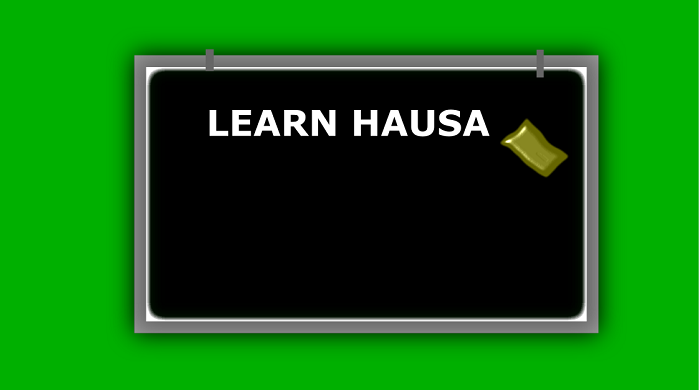
Giving and Asking for Directions
Visiting a new place can be very daunting and confusing, you will need directions to certain places, and how will you do this if you are not armed with some common Hausa language phrase.
- Ina gidan wanka: To go to the bathroom you say Ina gidan wanka? This literally means “Where is the bathroom?” The response to this question can be Kunna bar / Juya dama which means “Turn left / right”.
- Kunna bar or Juya dama: Giving directions in a cab or public vehicle is an activity that is bound to happen. To direct the driver of the vehicle you are in say Kunna bar or Juya dama. The former means turn left and the latter means turn right
- Daina: Another instruction that will come in handy while in transit is Daina and this means “Stop”
During A Food Outing
A food outing is bound to occur when you visit a new place. This is when you visit restaurants in the area to either satiate your hunger or try new dishes.
- Dadi: When you encounter delicious food, what you say to your host is Dadi which means “Delicious”. This is an indication of your feelings about the meal and is great to say when you are eating in a private home.
- Ina jin yunwa: When you want to signal the need for food, and express hunger you can say Ina jin yunwa which means “I am hungry”.
- Ruwa: The northern area of Nigeria is known for its extremely dry water, which means that as a visitor to this area you will need water a number of times. To ask for such, all you have to say is Ruwa and water will be brought to you as that is what it means.
Work-Related Greetings
- Sannu da Aiki – Well done/ greetings at work
- Ina fata aiki Yana Cin Gaba daidai? – I believe work is going on well?
Response – Eh, na gode – Yes, thank you.
Greeting The Sick
- Sannu akwai Sauki ne? – Sorry are you improving?
- Zaka or Zaki Sani Sau ki yan Zu – You will soon recover
- Allah Zai tai makeka/ki ka Sami Sauki Amin – God will help you get alright – Amen
- Allah ya kawo sauki – Get well soon
- Ka yi Sauki Yanzu ne? i or a’a – Are you well now? Yes or No
- Ka yi ta rokon Allah, Zai taimake ka or ki – Always pray to God, He will help you
Here are some other general Hausa words and phrases and their English translation.
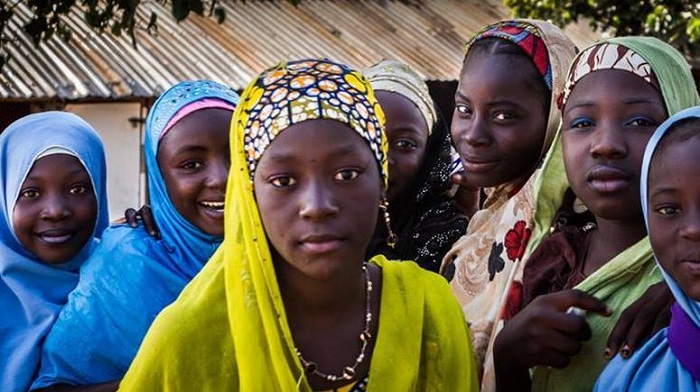
- Kira ya sanda: On the off chance that you are in an emergency and you need the police but cannot seem to communicate that, what you should say is kira ya sanda and people around you will instantly know that you are asking for the police.
- Nawa ne wannan: When you visit the market and you want to make a purchase, you can begin the transaction by asking Nawa ne wannan. There’s a popular belief that Hausa people are honest traders. When doing a deal or trying to find out the price of an item, you say, ”Nawa ne wannan?” which means “How much is this?”
- Kana jin harshen turanci kuwa? – Do you speak English?
- Kana jin harshen Hausa? – Do you speak Hausa? Response: Eh, kadan kadan – Yes, a little
- Ina kwana – How was your night
- Bar̃kâ da asuba – Good Morning. The response is Lafi ya
- In Yini – Good Afternoon.
- Sanu da Yamma/ Bar̃kâ da darê – Good Evening. The response is Yau wa
- Sai Gobe – Good Night or Until Tomorrow
- Saida Safe – Until in the morning. The response is Allah ya kaimu‘ – ‘May God grant us the opportunity to see tomorrow’.
- Ina Gaji Ya? – How about the hangover work? Response: Ba gaji ya
- Yahakuri – Sorry
- A lura sosai! – Look Out!
- Ya ya dai – How is it?
- Ina fata kana lafiya / Kina lafi ya (Female) – Hope you are well?
- Kada ka yi Fushi – Don’t be angry/upset
- A’a – No
- Eh – Yes
- Ban sani ba – I don’t know
- Watakila – Maybe
- Sannu da hûtâwâ– Greetings at rest
- Sannu da zuwâ – Welcome
- Yâyâ gidâ? – How is the household?
- Bar̃kâ da râna – Good day
- Yâyâ aikî? – How is work?
- Yâyâ makarantâ? – How is school or studies?
- Yâyâ garî? – How is town?
- Yâyâ lâbârî? – What’s up? Or How is the news?
- Yâyâ iyâlî? – How is the family?
- Yâyâ ruwâ? – How is the rain?
- Kana lahiya? (To male) – How are you?
- Kina lahiya? ( To female) – How are you?. Responses to How are you are Lafiya – good, Lafiya lau – fine, Lafiya ƙalau – very good.
- Kwana biyu – Long time no see
- Daga ina ka fito? – Where are you from? Response is Na fito daga… – I’m from…
- Allah ya ba da sa’a – Good luck!
- Kana zuwa nan sosai? – Do you come here often?
- A ci abinci lafiya – Have a nice meal /Bon appetit
- Sauka lafiya – Have a safe trip/arrive safely
- Kana jin harshen? (General) – Do you understand?
- Ka gane? (Male) – Do you understand?
- Kin gane? (Female) – Do you understand? The response is Na gani – “I understand” or Ban gane ba – “I don’t understand”
- Dan Allah kara fada – Please say that again
- Gafara dai – Excuse me
- Taimaka! – Help!
- Don Allah – Please
- Wuta! – Fire!
- Dakata! /Tsaya! – Stop!
- Kira yan sanda! – Call the police!
- Kyale ni!/Rabida ni! – Leave me alone!
- I na makewayi ya ke? – Where is the toilet/bathroom?
- Fadi sannu sannu – Please speak more slowly
- Dan Allah rubuta – Please write it down
- Ina madaicin ka (Male) – I miss you
- Ina madaicin ki (Female) – I miss you
- Wannan mutumin zai biya komai – This gentleman will pay for everything
- Wannan matar zata biya komai – This lady will pay for everything
- Zaka so kayi rawa da ni (Male) – Would you like to dance with me
- Zaki so kiyi rawa da ni (Female) – Would you like to dance with me?
- Ina son ka (Male) – I love you
- Ina son ki (Female) – I love you
- Bar nan!/Tafi daga nan! – Go away!
- Taya murna! – Congratulations!
- Barka da sabon shekera – Birthday greetings
- Barka da Kirsimatikuma – Christmas greetings
- Barka da sabuwar shekara – Happy New Year/ New Year greetings
- Yare daya bazai isa ba – One language is never enough
- Sama – Sky
- Gidan Sama – Storey/tall building
- Ina Jin Yuwa – I am hungry
In addition to learning phrases, learning some basic numbers in Hausa is bound to make a lot of difference in communicating with the language. Here are the basic numbers and what they are called in Hausa:
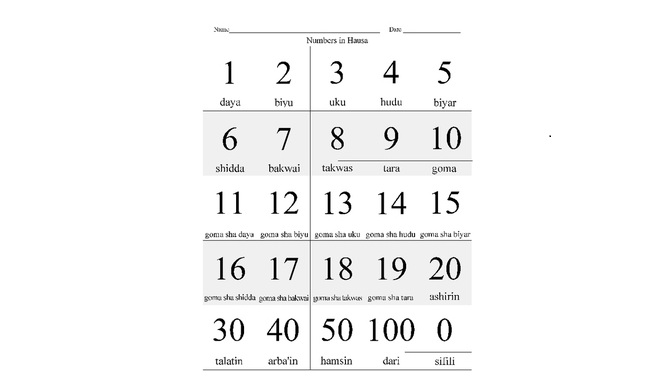
- 0 – sifili
- 1 – ɗaya
- 2 – biyu
- 3 – uku
- 4 – huɗu
- 5 – biyar
- 6 – shida
- 7 – bakwai
- 8 – takwas
- 9 – tara
- 10 – goma
- 20 – ashirin
- 30 – talatin
- 40 – arba’in
- 50 – hamsin
- 60 – sittin
- 70 – saba’in
- 80 – tamanin
- 90 – tis’in
- 100 – ɗari
- 200 – ɗari biyu
- 300 – ɗari uku
- 400 – ɗari huɗu
- 500 – ɗari biyar
- 600 – ɗari shida
- 700 – ɗari bakwai
- 800 – ɗari takwas
- 900 – ɗari tara
- 1,000 – dubu
- One million – miliyan
The Hausa language has one of the highest numbers of speakers in Nigeria and the government has spent a lot in developing the language to the level where it stands today. It is also a general belief that Hausas are not very accommodating of other people’s languages. They speak other languages out of necessity and will always revert to the Hausa language once there is mutual intelligibility. Therefore, it is necessary to learn some Hausa language phrases if one intends to visit the northern part of the country.
Moreover, Hausa people are found almost everywhere in Nigeria for business. They are mostly found selling foodstuffs, including pepper, meat, tomatoes, onions, beans, potatoes, yam, fruits, and several other things. Several of them have also taken to the transportation business, especially bikes in several states in Nigeria. It is therefore pertinent to have some Hausa language phrases handy, especially when communicating with a Hausa with little grasp of English, Pidgin, or the language spoken in the immediate community.
